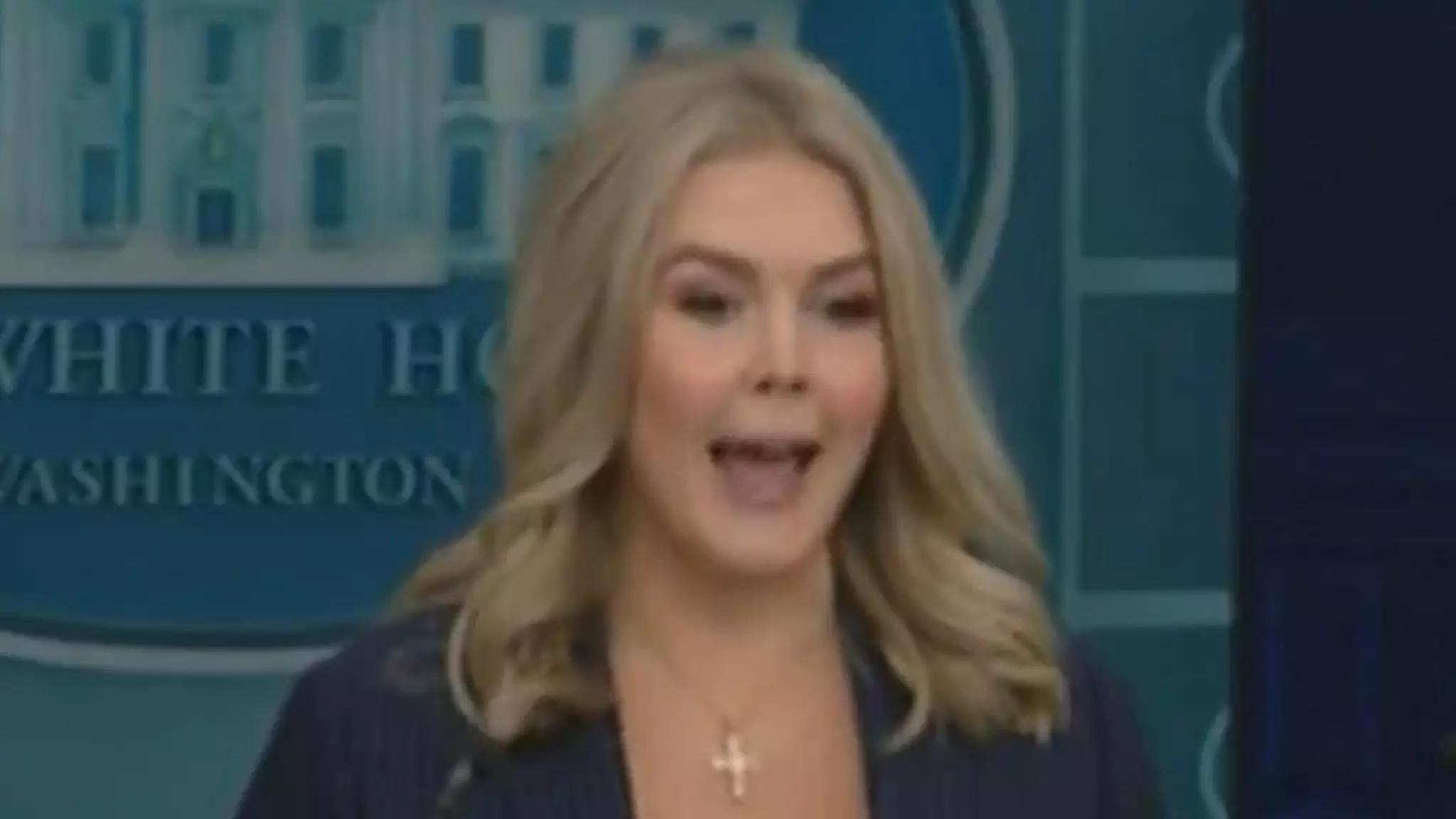In today’s political environment, the relationship between the government and the media has become increasingly contentious. President Trump is making it abundantly clear that his administration expects compliance from news outlets regarding terminology and framing. This unsettling trend raises concerns about the state of free speech and journalistic independence. The issue at hand revolves around the designation of geographic terms, specifically the Gulf of Mexico, which has now been renamed the Gulf of America by presidential decree. The ramifications of such a shift are profound, extending beyond mere semantics; they symbolize a broader struggle for control over public discourse.
The Role of Press Secretaries
Press secretaries traditionally act as intermediaries between the media and the government, but Karoline Leavitt’s approach marks a shift towards confrontation. During a recent briefing, Leavitt asserted the administration’s demand for accountability by stating, “If we feel that there are lies being pushed by outlets in this room, we are going to hold those lies accountable.” This sentiment conveys an alarming willingness to penalize outlets for perceived inaccuracies, bringing to the forefront questions regarding the pressures media entities might face under a regime that champions a singular viewpoint.
The assertion of authority over terminology has significant implications for First Amendment rights. CNN correspondent Kaitlan Collins highlighted this tension by questioning whether the administration might engage in retaliation against reporters who do not adhere to the administration’s lexicon. Leavitt’s response, firmly encapsulated in a direct affirmation, points to a problematic precedent that could undermine the checks and balances inherent in a democratic society. This scenario is reminiscent of authoritarian regimes that impose control over the narrative, raising alarms about potential censorship in America.
The media, particularly outlets like the Associated Press, are finding themselves in a precarious position. The AP has defended its adherence to established nomenclature, arguing that it serves a global audience that may not recognize the Gulf of America. By maintaining journalistic standards that emphasize accuracy and neutrality, the AP underscores the importance of credibility in an age marked by misinformation. However, the administration’s aggressive posture may intimidate news organizations, forcing them to navigate a complicated landscape where adherence to government-defined language could have wide-reaching consequences.
Ultimately, the situation surrounding the Gulf of Mexico’s rebranding encapsulates a more significant narrative regarding the balance of power in media relationships. While freedom of expression is touted as a fundamental American value, actions from this and previous administrations raise critical questions about who truly holds sway over public discourse. As government and media dynamics continue to evolve, journalists must remain vigilant, advocating for their role as the fourth estate while discerning how to operate in a politically charged atmosphere where language becomes a tool of power. The future of journalistic integrity hangs in the balance, and how this challenge is met can define the contours of press freedom for years to come.

